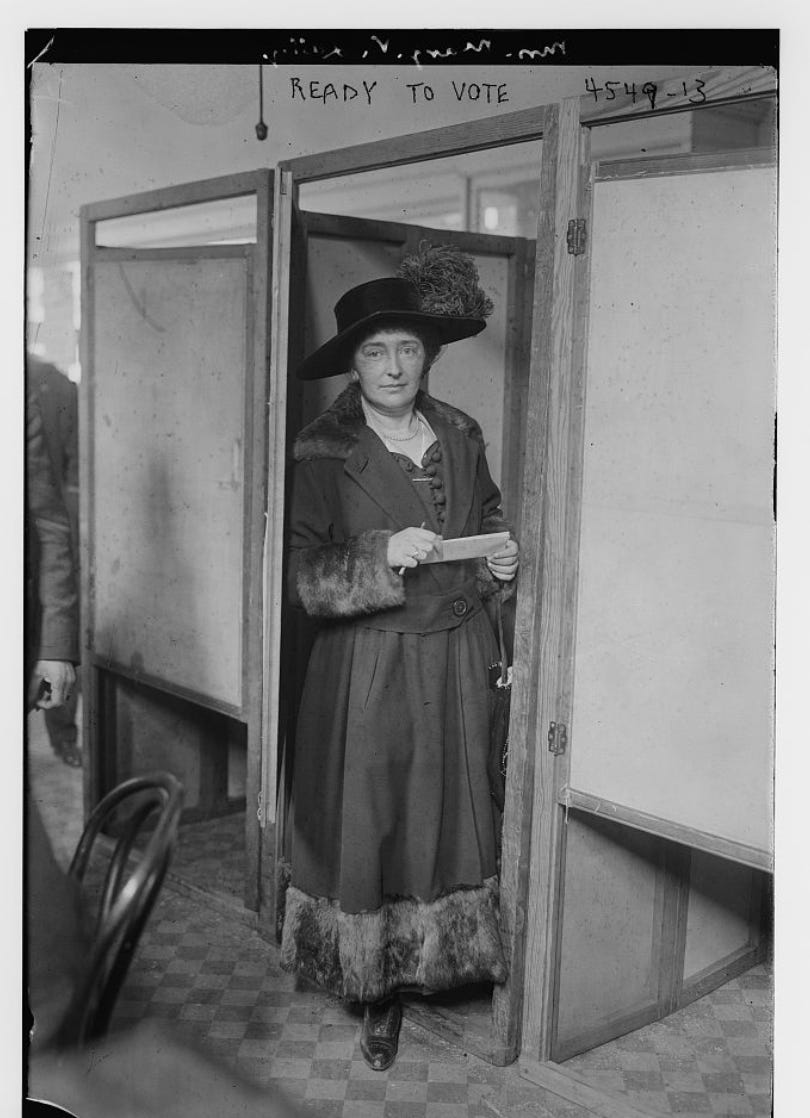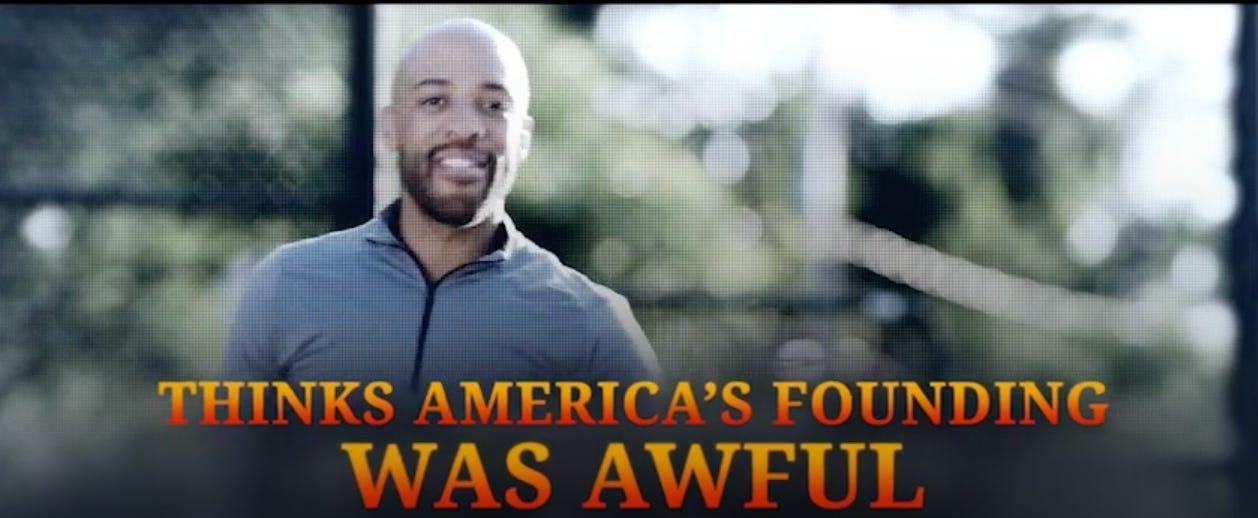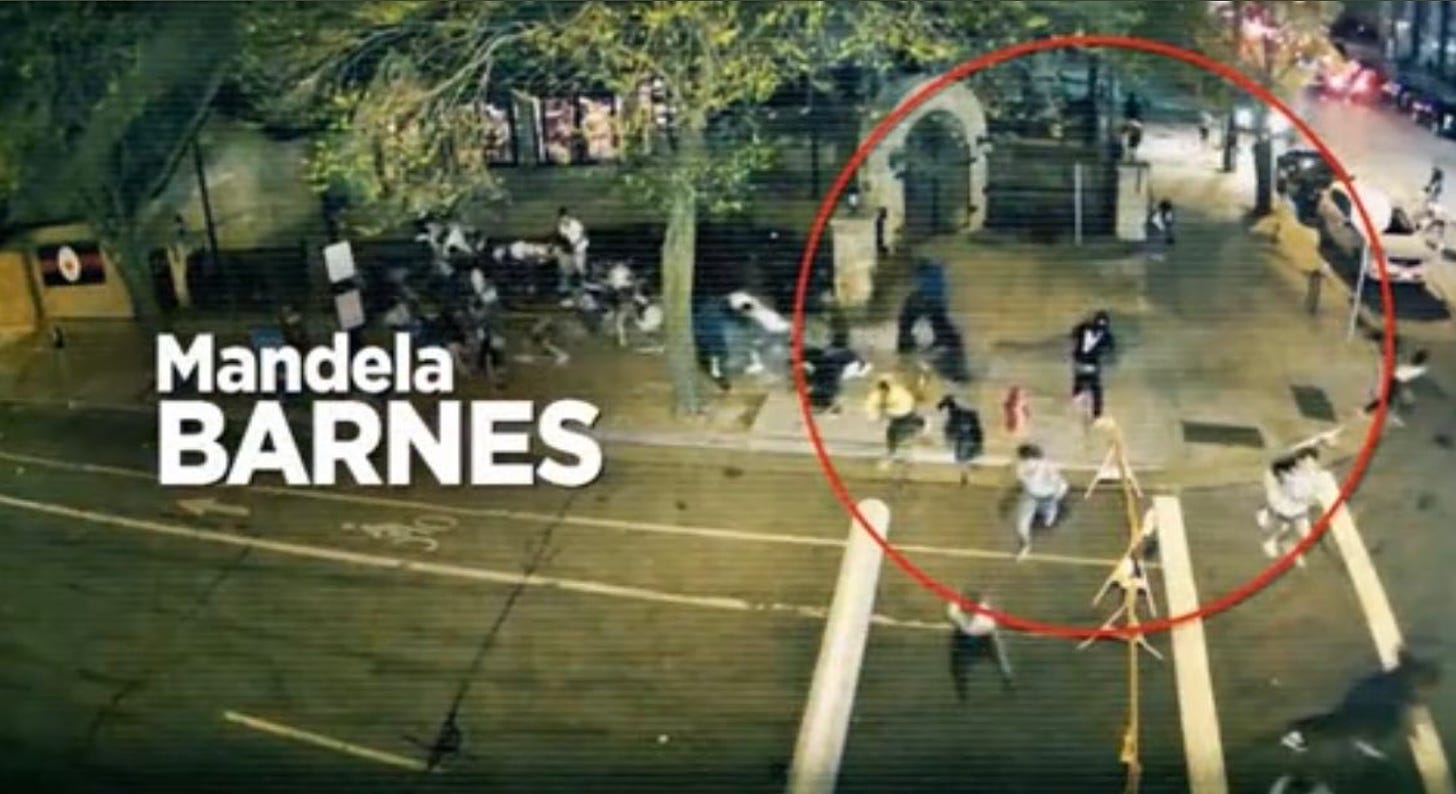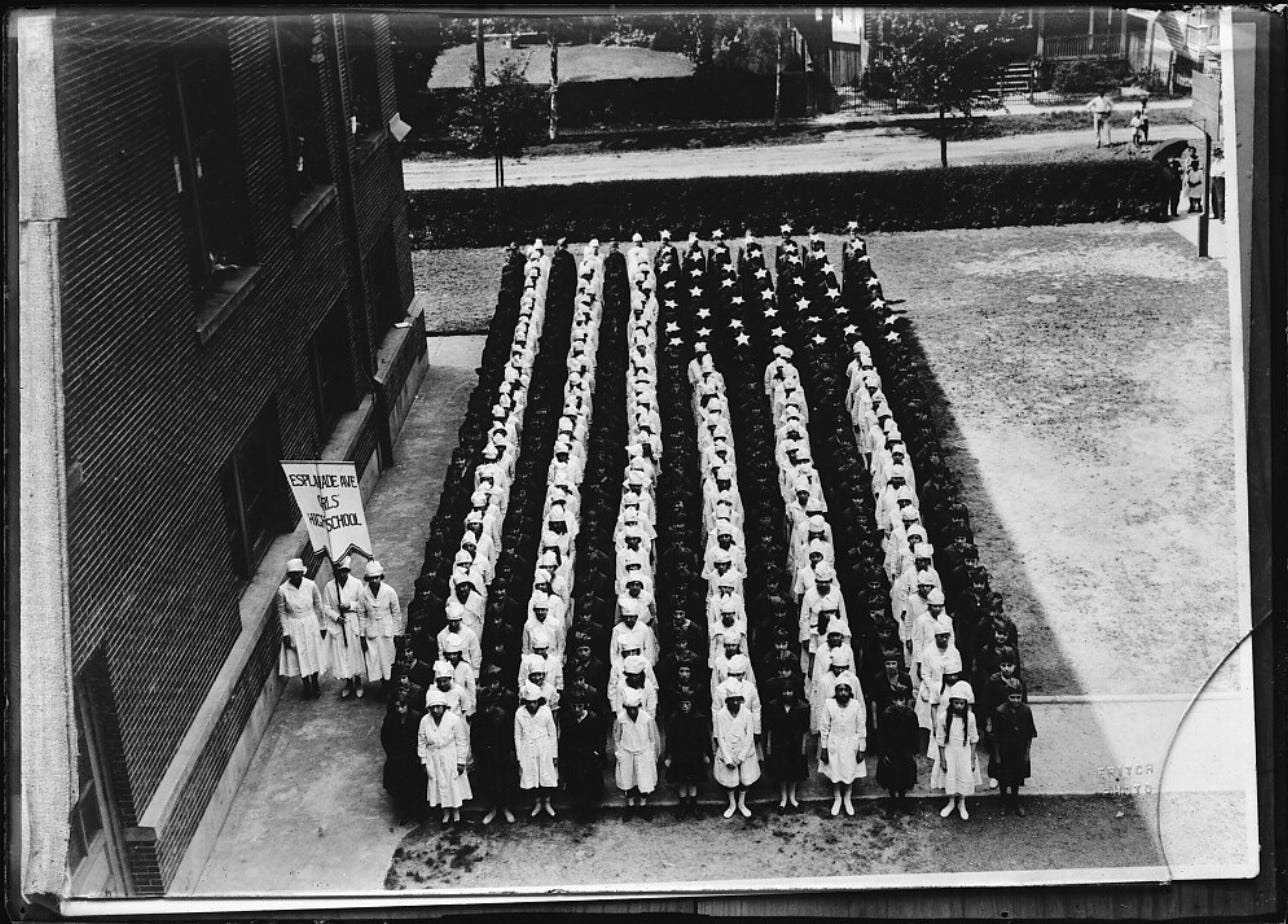30 second soul destroyers
On a very bad thing that everybody hates but that we've convinced ourselves will never go away
Top notes: I’m honestly not quite sure why I’ve written so much about political detritus lately. Last week we talked reactionary stunts and why they’ll keep happening. A few weeks ago we talked about what fascists want most in the world (to appear normal) and why it’s good news when they fail at that goal [The counter-point, as we’re seeing in Sweden and Italy right now, is that it is extremely bad when they do succeed. I’ll be writing about that soon, I promise. It’s taken me a while to process the Sweden situation in particular].
There’s more political nonsense to talk about this week. Is this a series? Again, I’m not sure, but I do know that I have the time and space to explore all this because you all are kind enough to be here, and in particular because some of you have chipped in financially. Thanks for that. Thanks also to those of you who are considering doing the same. It’s not coincidental that I’ve been able to carve out more time to write since paid subscriptions have started up.
One of the loveliest lines in Rebecca Solnit’s A Paradise Built In Hell is about New Orleans. Solnit came to that city as part of her broader project documenting the networks of support and care that emerge organically in the wake of tragedies. Once there, she discovered not only a Katrina-specific story, but a broader tradition of Black community support networks dating back to Reconstruction. Many of these networks have been historically linked to that city’s festival culture. Of particular note was The Social Aid and Pleasure Clubs, which for decades have coordinated many of the Crescent City’s legendary Second Line parades. What a name, truly!
Writes Solnit:
“Their very name acknowledges as little else does in everyday language that mutual aid and pleasure are linked, that the ties that bind are grounds for celebration as well as obligation.”
Lovely, right?
I’ve been thinking about that line a lot lately. I’ve been thinking even more about how the opposite is also true. That is, if joy has a fairly consistent root, so too does sorrow and resignation and hopelessness.
I was in a really good mood last Friday. My son had a bad cough the night before, but it had cleared up before it was time to go to school. My daughter begrudgingly approved of the tightness with which I had tied her shoes. Plus, the three of us had just spent the previous hour listening to Taylor Swift’s Lover at the wrong RPM on the record player. We did the chipmunk thing. It is such a hacky parenting move. It shouldn’t still work. But oh my God it worked. Just absolutely slayed. We fell off the couch, we laughed so hard.
Also, it was fall, finally. The good season. The bug-less season. The official season for White people of a certain professional class and social position to make a big deal out of the articles of clothing we are wearing now: how much thicker they are, how much like wearable blankets they are, how much more we assume that they make us look as if we built a cabin with our own hands and are raising our children there, that we are teaching those be-cabined children to love the land but also to write mossy, complicated prose about gender and wind.
Plus, school drop-off usually puts me in a good mood. It’s the rush of immense parental accomplishment. I remembered two lunches, two water bottles, two masks. Sweatshirts too! And before second bell! But more so, our school does a lovely job of making drop-off pleasant and easy. The smiles and greetings from the staff members at the front curb seem genuine. They make me less self-conscious about how unconvincing my gentrified “Buenos Días” sounds. On Friday, they play music as the kids enter. It’s usually Encanto. I don’t necessarily need more Encanto Soundtrack in my life, more drip, drip dripping and family Madrigal introducing and Bruno resenting, but it’s fine. Or normally it is, because whatever service they were streaming from on Friday included advertisements (not their fault! ad-free streaming is expensive!), which meant that my mumbled “Bien, Gracias, ¿y tú?” was interrupted by an ad that immediately stopped my good mood in its tracks.
The ad told me that Mandela Barnes wanted to defund the police. It told me that Mandela Barnes wants to eliminate cash bail and let illegal immigrants swarm our cities and put more criminals in the street. “More criminals, less cops… what could go wrong?” the ad asked. That line was delivered with a sarcastic half-snicker, like how a superhero might say it in a self-aware blockbuster. You know the style. “Well, that happened!" ha ha ha. But with racism and endearing fidelity to the carceral state.
It was not a new ad. I had heard it before. I had heard so many ads before. But I hadn’t heard an ad in this exact location before.
Very small children— most of them Black and Brown— streamed past me, backpacks and braids bouncing up and down. They didn’t seem bothered by the ad. Children possess a preternatural ability to tune out any dialogue that shows signs of being boring as hell. I didn’t want to call any more attention to it, regardless, so I hugged my kids and turned away to go off and be sour by myself.
We don’t talk about… well, a lot of things, actually.
We’ve all been swimming in the same big dumb bad faith political pool long enough that you don’t need any context for those ads, but here goes nothing: The United States Senate is a terrible idea, but the state of Wisconsin is holding one of the few elections that can shift it rightward or leftward in a meaningful direction this cycle. This is often the case, as it is for our swing state siblings in Pennsylvania and Ohio and Arizona, which means we’re all stuck in a perpetual loop of “Berenstain Bears and Too Many Soul Destroying Ads!” In our case, these ads are purportedly in support of either the Republican incumbent Ron Johnson or the Democratic challenger Mandela Barnes. The problem for Ron Johnson’s re-election campaign is that he (a). comes off as being generally dumb and unlikeable and (b). regards every other human being with a palpable level of disdain. The great news for Ron Johnson’s campaign is that his opponent is young and Black.
This is why I heard that particular ad outside my kids’ school. That’s why I keep seeing or hearing them everywhere. The voices on the ads never belong to Ron Johnson, because most of them come from various PACs. The voices sound concerned. They sound White. They sound like the ghosts of so many Next Door posts.
There they are as I listen to the Brewers game on the radio, reminding me that Barnes would like to release prisoners from our jails en masse. There they are again, as I pull up a Youtube video in a futile attempt to learn how to make blueberry pancakes that aren’t undercooked and batter-y. Those concerned voices tell me that Barnes is a “different kind of Democrat” as images of Alexandria Ocasio-Cortez and Ilhan Omar flash on the screen. The concerned voices are back later that night as I try to watch an episode of Reservation Dogs before falling asleep. They remind me that too many people are being murdered in Milwaukee. There’s a grainy video of some sort of downtown brawl, with a big red circle around one of the participants. The words on the screen say “Mandela Barnes" and, you know, the ad is definitely not saying that Mandela Barnes is personally committing crimes in downtown Milwaukee, but if you want to believe that, well, that’s your prerogative. it’s a crazy world these days. Who’s to say. etc., etc.
There are three types of people in these ads. There are cops, who are good. There are criminals and illegal immigrants, who are bad. Then there is you, the assumed you, the concerned you, the victimized you, the you who needs to be protected by the good from the bad. You don’t live near the criminals and illegals, but they’re coming for you.
I am supposed to be mad at these particular ads, because they are not for me. I am supposed to be angry because we are told that negative ads work and the shear volume of negativity will make it more likely that the candidate I support will lose and the candidate I don’t support will win. I am supposed to feel consternation at how the Barnes campaign is or isn’t replying to the ads— whether they are creative enough or tough enough or are taking-the-fight-to-the-other-side enough. I am supposed to be frustrated that these ads are interrupting my stories. I am supposed to feel defeated that I still don’t know how to make it blueberry pancakes that aren't intermittedly gloopy, and perhaps that wouldn’t be the case if not for those damn ads. I am supposed to be fed up with politics these days and feel wistful anticipation for a moment in the near future where my streaming diet is interrupted by good, righteous commercials for things like prescription medicine and cryptocurrency.
There have been studies, of course, about the effect these ads have on our brains. “It’s bad,” the studies say. “The effect is bad!” More specifically, these ads are like tiny empathy-killing knives jabbing our orbital frontal cortex over and over again. When the ad in question attacks a candidate we oppose, our resentment for them and their supporters builds and builds, as you’d expect would be the case. But that’s just one part of the equation. When we are inundated with negative ads against a candidate we support, our empathy for and connection to that human being and the communities they represent also decreases. We turn on those for whom we once felt affiliation and compassion. We become increasingly unmoored and isolated. When we talk about a negative ad “working,” it’s both because it makes the side doing the attacking more likely to turn out and because it makes the side being attacked feel deflated, in every sense of the term.
It’s notable that, in the week after I’ve shared my frustration with the ad at school drop-off, every single response I’ve received from another progressive Wisconsinite has been “yeah, the Johnson campaign is awful… and Barnes has no response! What is that campaign even doing?”
The ads work.
The fact that the ads are Abhorrent But Effective is one of those political realities that we all recognize but just sort of shrug off, because what are we going to do about it? We take small comfort in knowing that however awful they are, the cycle will end at some point. If our side wins, it was all worth it. If our side loses, it wasn’t. This is how those things go.
I’m not really worried about these ads on a cycle-to-cycle level, though. I’m worried about what all these empathy-destroying 30 second knives have done to our relationship to each other, election-after-election, cut after thousandth cut.
I am, of course, worried about the compounding effect on these ads on some imagined rural, White Wisconsinite. I worry about these ads filling them full with fear and hate and sucking dry any ability for grace and common care. That’s the particular fear that was triggered as I heard that awful ad and had to square it with the goofy, lovely, perfectly imperfect kids running up to the front door of our school. I hate the way that entire communities are reduced to a caricature, reduced to a sub-human scourge to be avoided at all costs.
But when I’m really honest, I’m just as worried about the fact that I just literally imagined a caricatured antagonist of my own out of whole cloth. I cast myself— no doubt with at least a heaven dose of saviorism— as being on the side of a righteous, beleaguered, multicultural Wisconsin. I instantly convinced myself that the only viable path forward is destroying whatever malevolent set of eyes I imagine are clapping for those ads like giddy seals, both at the ballot box and in life.
What I don’t do is hate those ads when they’re on, try to avoid them where possible and then go back to the long hard work of organizing in parts of Wisconsin where the people all look like me. Instead, one cycle ends, “we” either win or lose, and I batten down the hatches until the next time, when the political math will be the same, when both parties will again assume they know where their supporters and detractors live, when we just wind back the whole dumb affair again.
The fact that I don’t do that is, in part, the ads’ fault. But I do have a choice in the matter.
What we don’t talk about when we talk about The Ads is how, across the state, we’ve got people dying preventable deaths. Some of those deaths- in White and Black and Brown communities alike- are by guns. A bunch more are from needles and bottles and cars driven like missiles. We don’t talk about the epidemics of sexual assault and intimate partner violence in every one of our state’s counties. We don’t talk that the richest amongst us- the Uihleins and the Hendrickses in our case- are behind all those ads that make us hate each other. We don’t talk about how badly it feels to have our potential care for one another reduced to dust.
We don’t talk about most things, as it turns out. At least not with each other. At least not in a way that could shift balances of power.
We live in a a state where dairy farmers go broke and take their own life, where teenagers get in stupid arguments and pull out guns and where just about wherever you live, the money always seems to flow in one direction.
If the alternative to the bad ads is some faux-centrist-hold-hands-and-compromise moment, we’ll stay right here where we’re currently stuck. I’ve got no energy for anything like that; we’re hurting far too much. If, however, the alternative is a politics that starts from the assumption that a whole lot of different types of pain can be real at the same time, but that we can be each other’s solution… that’s different.
If there is joy in mutual aid, there is immense, immense sorrow in mutual antagonism. I’m tired of sorrow. I’m tired of being asked to perform a politics that only leads to more sorrow.
It’s not that I don’t care about who wins or loses a given election cycle. Elections have consequences, we’re told, not incorrectly. But one of those consequences is how they train us to treat one another, what they teach us matters and doesn’t matter, and what we’re left with when the ad buys are over and all that remains is our mutual disdain.
Postscript: On a recent episode of the Movement Memos podcast, organizer Kelly Hayes interviewed Dean Spade about what we’ve learned about mutual aid efforts in the past few years and where we need to keep taking that work. This quote stood out.
“What we want is for mutual aid projects to be things that bring people into new radical ideas, to bring people into community with others who share what they believe in and take direct immediate action of multiple kinds. So not just donating, but also now I’m also going to go and try to help stop the next sweep that’s happening in my town. Or I’m also going to be writing letters with prisoners, or I’m also going to… stop them from building that next new jail in my town. Or just how do keep people get an inroad from their first engagement with a mutual aid project and then actually find out about more ways to become bolder and bolder and have a bigger part of their lives be a space of participation…”
End notes:
This week’s song: I referenced the Bruno song multiple times up above but I will not be choosing the Bruno song. I’m not up to that point in my reconciliation with it. Instead, here’s my favorite song about the U.S. Congress. I like that you can tell some sinister dealings are going down under the vague grandiloquence, but you can’t put your finger on what/why/how. The vibes are just off, is the thing. The vibes are always off. It’s “The Beehive State” by Randy Newman. Just listen to how he pronounces the word “delegate.”
[Also: here are the collected songs of the week, on Apple Music and Spotify].
This week’s subscribers-only discussion: Last week I left you with a cliffhanger as to what I would choose for the discussion. I went with “what one element of your daily routine makes the biggest impact on your quality of life” and I learned a lot! I have also stolen/adopted some ideas. In return, I shared a picture of me sitting in my Poang and drinking coffee from my Anne Braden mug. A fair trade, if you ask me.
This week (dropping tomorrow), we’re gonna do '“What is the most [insert your geographic community] thing about you?” Like, even if you don’t feel necessarily all that American or Canadian or Southern or Arizonan or Melbournian, what aspects of your personality/world view DO match the stereotype of where you live or where you came from?
As always, I hope you join us. If you can’t afford a subscription (or if you’ve already supported Barnraisers in other ways), no need to justify why you want a comped membership; just ask and I’ll add you for free.









gosh, Garrett, one amazing clause and sentence after another. I want to shout out this one: “...that we are teaching those be-cabined children to love the land but also to write mossy, complicated prose about gender and wind.” that brought me joy. one of your many pieces that makes me wish I participated in Facebook so I could share it with all my “friends,” but then, of course, it would appear beside a 30 second soul destroyer--the rub. oh, prayers for more community potlucks, for more community crankie projects, for finding kinds of care we can share. thank you for everything you are up to, and come round sometime for a pancake lesson 😉.
I'm new here. Love this! Have you come across the book Elite Capture, out this past May by Olúfẹ́mi Táíwò? I feel like the constructive politic in that book might be a balm and aid (or extension) of where you're scratching here, on what we do after the news gets dour.
Thank you for your work and your writing and for modeling your commitment with so much love, care, and humanity.